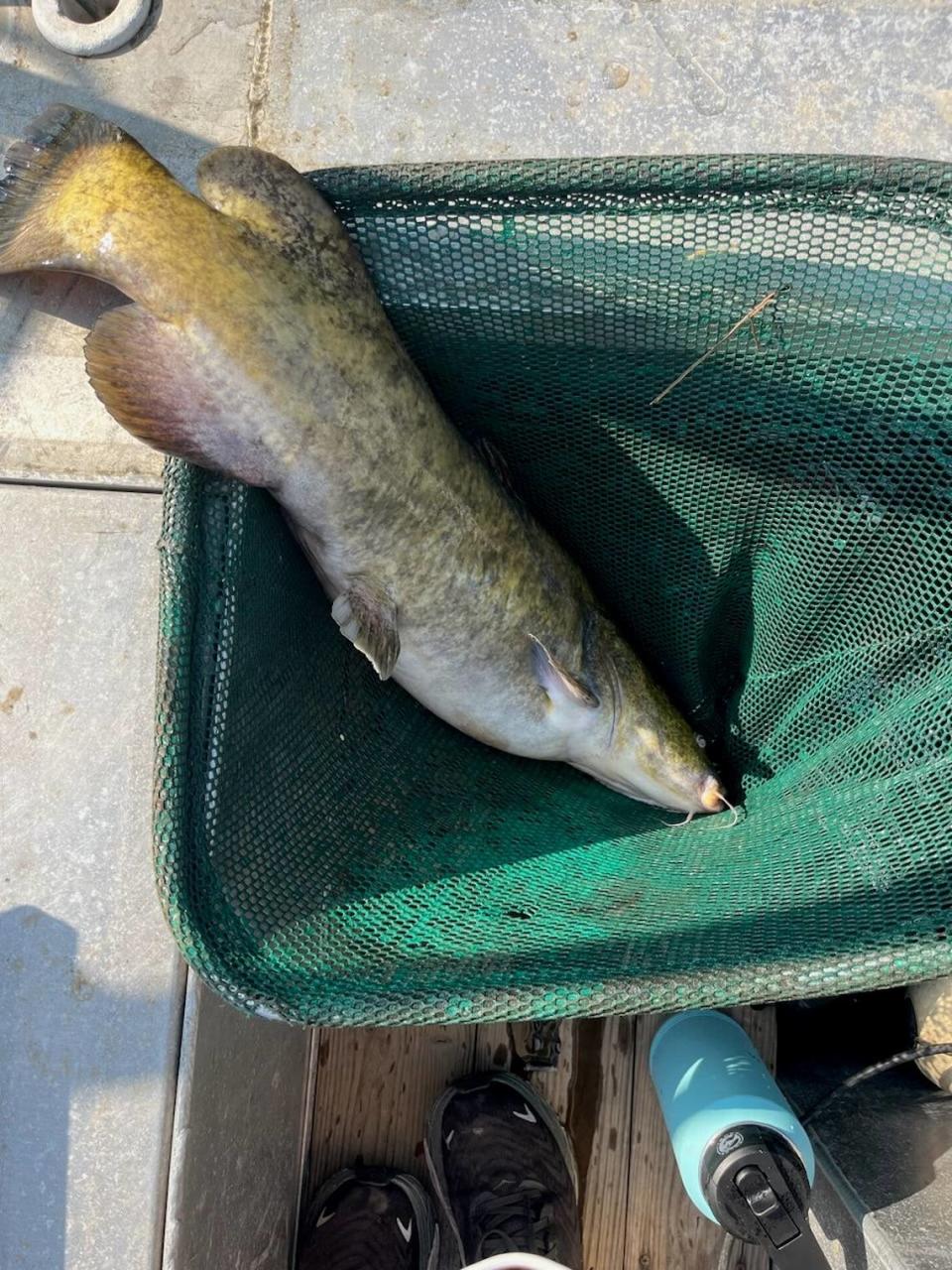Invasive fish — an ‘apex predator’ — is pulled from Georgia river. Why it poses a risk
An invasive species with a big appetite for native fish has spread into a new Georgia waterway, officials warn.
During sampling efforts in the Ogeechee River, which flows southeast toward Savannah, Georgia Department of Natural Resources officials found a non-native flathead catfish in August, according to the wildlife division’s Sept. 21 news release. Now officials are urging anglers around the Ogeechee River to “harvest and report” the invasive species from the waters to help the department’s removal process, the release says.
Since the first flathead catfish was pulled from the Ogeechee River this year, about 20 flatheads total have been removed from the river as of Monday, Sept. 25, Georgia Department of Natural Resources Wildlife Resources Division biologist Joel Fleming told McClatchy News. The average size of the flatheads pulled was about 17.1 inches at the end of August, Fleming said, but one flathead removed by a two-person crew Monday was 38.5 inches.
A commercial fisherman in the Ogeechee River caught a flathead catfish in December 2021, the release says, and no other flatheads were reported until the initial recent catch in August. The area has undergone extensive sampling since the flathead was caught in 2021, according to the release.
Flatheads are native to northwest Georgia in the Coosa River, according to the Georgia Department of Natural Resources. They can grow to more than 100 pounds by eating other native fish in the waterways they inhabit.

Since being introduced to other rivers such as the Savannah, Satilla and Altamaha rivers in Georgia, flatheads have posed “significant ecological risk” due to their “predation on native species,” officials say. Flatheads have “decimated the popular redbreast sunfish and bullhead fisheries,” which causes disruption to the food chain, according to the Georgia Department of Natural Resources.
If the flathead population continues to expand, the Ogeechee River’s “premier redbreast fishery” will certainly be impacted, Fleming said.
“They are going to be one of the apex predators around every system once they establish those populations,” Fleming said. “If they can fit it in their mouth, they’re going to eat it.”
The recent group of flatheads caught in the Ogeechee likely “wandered in” from the Savannah River because flow rates between the rivers have been high, Fleming said.
In their efforts to try and sample different catfish species, the Georgia Department of Natural Resources uses electrofishing — a method of sampling that puts out an electric pulse that stuns nearby fish to be caught. As time goes on, fish become less susceptible to the shocks, Fleming said, so officials cannot electrofish every day.
Catfish sampling typically takes place in the summertime, and with the recent influx of flatheads, sampling efforts have increased, Fleming said. About six or seven people are dedicated to sampling on the Ogeechee, he said, where they spend around 35 to 40 hours a week electrofishing, recording data and navigating the river.
Sampling crews try to get an idea of how far the flatheads have spread, but definitively determining population estimates would require officials to catch and release flatheads after tagging them. Because the department doesn’t want to release the invasive species back into the wild, it makes that task very difficult, Fleming said.
When Georgia wildlife officials remove the flatheads from the river, the fish are killed, Fleming said.
The department is sending crews out for sampling as often as they can, Georgia Department of Natural Resources coastal region fisheries supervisor Tim Barrett told McClatchy News. But it’s important to remember that addressing invasive species like flatheads isn’t as simple as just taking them all out of the water, he said.
“We can’t remove all the flatheads and will not be able to remove all the flatheads from Ogeechee or any other river. If we take them out, all we’re doing is suppressing the population,” Barrett said. “It’s just physically impossible to take them all out.”
The flatheads’ latest expansion into the Ogeechee is yet another reminder that people should avoid moving invasive species to different waters, Fleming said. People who spot or catch flatheads in the Ogeechee River should report and remove the fish from the water, he said.
Prolific invasive species that’s hard to eradicate is found in NC wild, officials say
Scaly creature — so tiny it’s hard to catch — is found on ocean floor. See new species
Giant fish ‘zigged when he should have zagged’ and gets stuck in NC city, rescuers say

